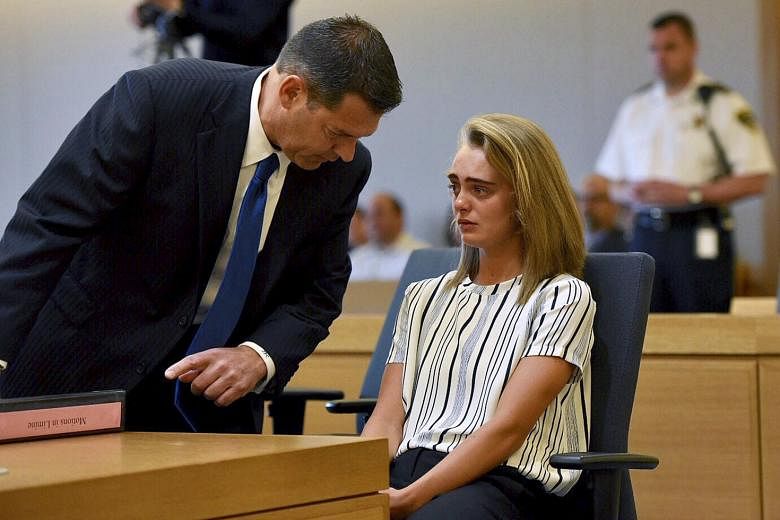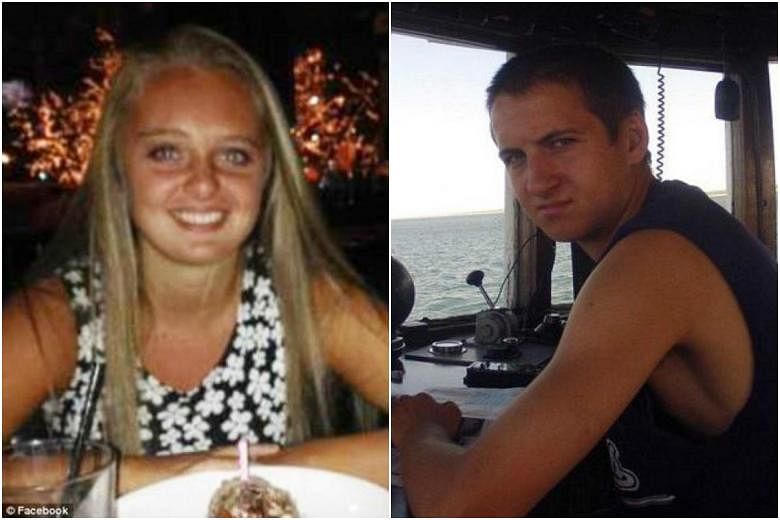TAUNTON, MASSACHUSETTS (NYTIMES) - The teenage couple shared mundane text messages - about a walk and a trip to get ice cream. But there were darker ones.
"It's time, babe," Michelle Carter, then 17, texted to her boyfriend, Conrad Roy, who had just texted that he was "ready." "You know that," she wrote. "When you get back from the beach you've gotta do it. You're ready."
"Okay, I will," Roy, 18, typed back, adding: "No more thinking."
"Yes, no more thinking," Carter wrote. "You need to just do it."
On Tuesday (June 6), Carter, now 20, is to stand trial on a charge of involuntary manslaughter in the death of Roy, who was found dead in his truck in 2014, after that exchange of text messages, more texts and two phone calls.
Roy was found near a compression pump that had filled the car with carbon monoxide, in a Kmart parking lot in Fairhaven, Massachusetts, and his death was deemed a suicide. But prosecutors say Carter was to blame.
Such cases are rare and raise unusual challenges for prosecutors: To what extent can one person be responsible - and criminally liable - for the suicide of another person?
"The key issue is going to be causation, of who actually caused the death," said Laurie Levenson, a professor of law at Loyola Law School in Los Angeles, who said suicide was generally considered the victim's decision. "Did she," Levenson said, "or did the victim himself?"
Armed with reams of text messages, prosecutors have argued in court filings that Carter essentially caused Roy's suicide, saying she pressured him to kill himself on numerous occasions and even discussed the best methods. If it wasn't for Carter, the prosecutors say, Roy would not have killed himself.
On Monday, Carter chose to have the case tried by a judge, rather than a jury. That approach is sometimes used by defendants in emotionally charged cases who want to bypass a jury in favor of a more dispassionate determination from a judge.
"The defendant is hoping that the judge will acquit or dismiss the case by following traditional notions of causation," said Joseph E. Kennedy, a professor who teaches criminal law at the University of North Carolina.
"Do you get to taunt a suicidal person standing at the edge of a building and scream 'jump' at them?" Kennedy said.
"The answer to that's not clear."


